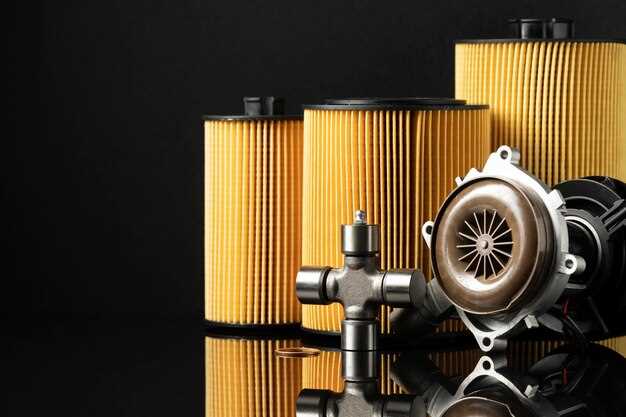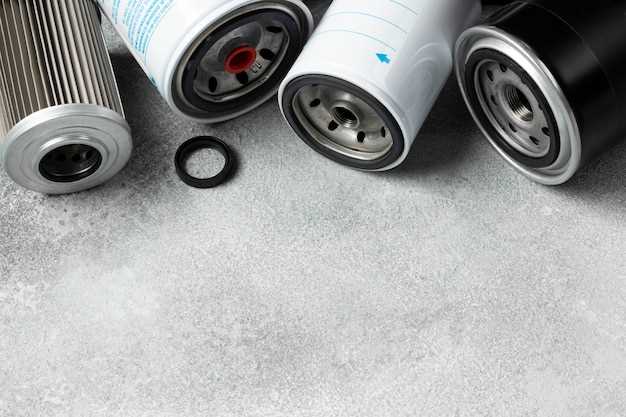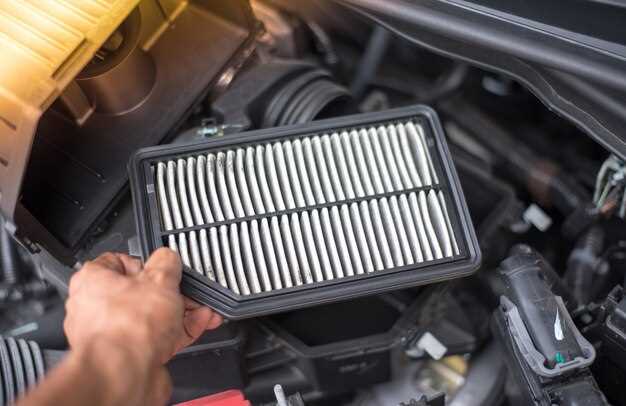
In the realm of automotive engineering, the significance of air filters cannot be overstated. These components play a crucial role in regulating the flow of air into an engine, influencing not only its performance but also its overall efficiency. The efficiency of an engine is largely determined by the quality of air it receives; thus, a well-maintained air filter serves as a vital gateway that ensures optimal combustion and power output.
The primary function of an air filter is to cleanse the incoming air from dust, debris, and other contaminants, providing the engine with clean air necessary for the combustion process. When the filter is clogged or dirty, the engine struggles to draw in an adequate amount of air, leading to reduced performance, increased fuel consumption, and higher emissions. Understanding the relationship between air filters and engine operation is essential for motorists seeking to maximize both performance and fuel efficiency.
Investing in a high-quality air filter can yield significant benefits, including improved horsepower, enhanced throttle response, and better fuel economy. Regularly changing or cleaning air filters ensures that the engine remains in peak condition and operates as intended. This article delves into the mechanics of how air filters affect engine dynamics, promoting greater awareness of their critical role in both performance and environmental impact.
How Air Filter Quality Affects Airflow in Engines
The quality of an air filter plays a crucial role in determining the airflow into an engine. A high-quality air filter is designed to provide optimal filtration while maintaining an adequate flow of air. It efficiently traps dirt, dust, and other contaminants, ensuring that only clean air enters the combustion chamber. When airflow is unrestricted, the engine can perform better, leading to improved power output and efficiency.
Conversely, a poor-quality air filter can severely restrict airflow. If the filter’s material is substandard or if it becomes clogged, it can create a bottleneck, preventing the engine from receiving the necessary amount of air. This can result in inadequate combustion, leading to a decrease in horsepower and torque. Additionally, restricted airflow can cause the engine management system to compensate by enriching the air-fuel mixture, which may reduce fuel efficiency and increase emissions.
The design of the air filter also influences airflow. Filters with a higher surface area allow more air to pass through while maintaining effective filtration. Some aftermarket filters are engineered to enhance performance by optimizing airflow characteristics, making them a popular choice among enthusiasts looking to boost engine performance.
In summary, the airflow regulated by the quality of the air filter directly affects engine performance and efficiency. Investing in a high-quality air filter can result in improved airflow, leading to better engine responsiveness, enhanced fuel economy, and reduced emissions.
The Relationship Between Air Filters and Fuel Consumption

Air filters play a crucial role in the overall performance and efficiency of an engine, directly influencing fuel consumption. A clean and effective filter ensures that a sufficient amount of airflow reaches the engine, which is essential for optimal combustion. When an air filter is clogged or dirty, it restricts airflow, leading to a richer fuel mixture. This condition can result in higher fuel consumption as the engine struggles to maintain power and efficiency.
Additionally, the quality of the air filter affects how well contaminants are kept out of the engine. High-quality filters enhance airflow, allowing the engine to utilize fuel more effectively. Conversely, a subpar filter may not only hinder airflow but also increase the accumulation of dirt and debris within the engine, leading to further inefficiency and increased fuel use over time.
Maintaining the air filter by regularly replacing or cleaning it can lead to noticeable improvements in fuel economy. A well-maintained filter supports better airflow, ensuring that the engine operates under optimal conditions. In summary, the relationship between air filters and fuel consumption is significant; proper air filter maintenance can reduce fuel costs while enhancing overall engine performance.
Signs of a Clogged Air Filter and Their Impact on Power Output

A clogged air filter can significantly affect your vehicle’s engine performance and power output. One of the first signs of an obstructed filter is a noticeable decrease in acceleration. When the air filter is dirty or blocked, the airflow into the engine is restricted, limiting the amount of oxygen available for the combustion process. This results in reduced power output, making it difficult for the vehicle to gain speed efficiently.
Another indicator of a clogged filter is a drop in fuel efficiency. Since the engine struggles to draw in adequate air, it compensates by consuming more fuel to maintain performance levels. Consequently, you may notice increased fuel consumption, leading to more frequent trips to the gas station.
A rough idle is also a symptom of an air filter issue. When airflow is insufficient, the engine can exhibit an unstable idle, which may present as shaking or vibrating. This instability can arise from improper air-fuel mixture ratios, further reducing the overall efficiency of the engine.
Additionally, decreased throttle response can be observed. A delayed reaction when pressing the accelerator indicates that the engine is unable to breathe properly due to the clogged filter. This delay can frustrate drivers and diminish the overall driving experience.
Lastly, engine misfires may occur more frequently if the air filter is significantly blocked. Insufficient airflow can lead to poor combustion, resulting in sporadic power delivery and engine hesitation. Addressing a clogged air filter promptly is crucial to maintaining optimal performance and power output.



